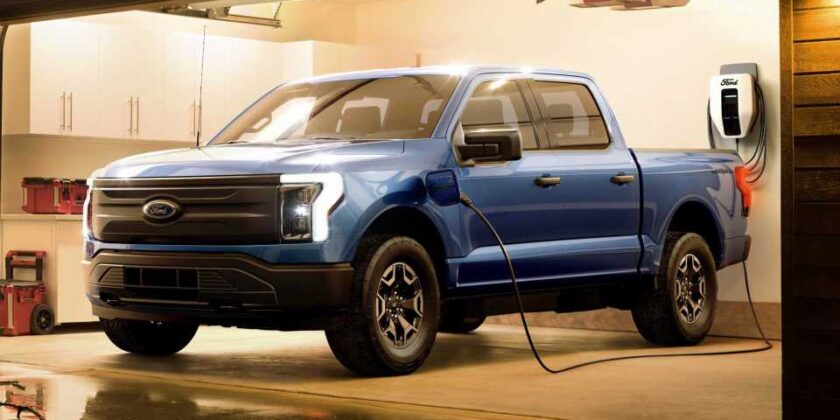The battery issue uncovered during a quality inspection at Ford’s F-150 Lightning plant in Dearborn has now prompted a recall for the popular electric pickup, albeit a small one. Ford says 18 2023 model-year trucks were shipped to dealers and possibly delivered to customers with a potentially defective battery cell.
At this time, Ford isn’t aware of any injuries or accidents connected to the issue. The fix involves replacing the battery pack at no cost to the customer. Owners affected by the recall will be notified as soon as possible, but in the meantime, Ford states the trucks can still be driven and charged. But an appointment to replace the battery pack should be made as soon as possible.
Gallery: Ford F-150 Lightning Production
The recall stems from a fire that occurred on February 4 at Ford’s Rouge Electric Vehicle Center. During a quality check, an assembled F-150 Lightning caught fire while charging. This brought the assembly line to a halt, followed by an investigation into the problem. An unspecified defect in battery cell production was identified as the root cause, stemming from the SK On battery plant in Georgia where the cells are made.
A deeper investigation found potentially defective battery cells were produced over a four-week period starting at the end of 2022. Working with SK On, Ford says the root causes of the problem were identified and changes have been implemented going forward. F-150 Lightning production is slated to resume on March 13 with new battery packs, ending a five-week pause.
The issue occurred amid strong demand for Ford’s electric pickup. The automaker sold 15,617 Lightnings in 2022, but 3,600 have already been sold through the first two months of 2023. Ford recently announced it would further increase F-150 Lightning production to meet increasing demand, which could reach over 150,000 units per year in the near future. To further help production while also reducing cost, Ford will build a new battery plant in Marshall, Michigan to supply its growing EV fleet with less-expensive LFP batteries.
Source: Ford
Source: Read Full Article

